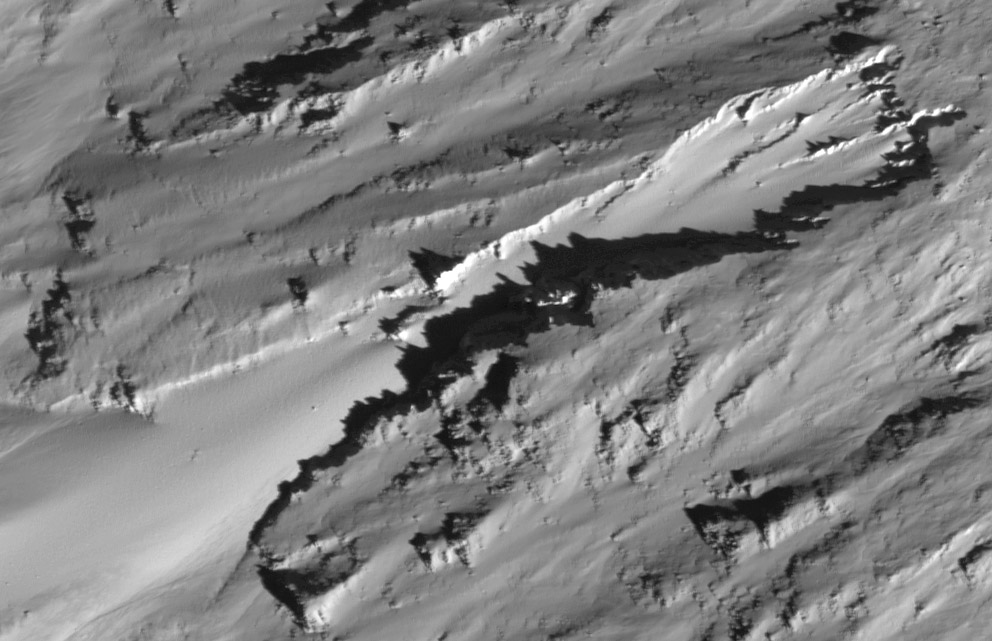Difference between revisions of "November 25, 2010"
| Line 10: | Line 10: | ||
Happy Thanksgiving to all!<br /> | Happy Thanksgiving to all!<br /> | ||
<br /> | <br /> | ||
| + | <p><b>Yesterday's LPOD:</b> [[November 24, 2010|Faces of the Moon]] </p> | ||
| + | <p><b>Tomorrow's LPOD:</b> [[November 26, 2010|More Than a 3 Ring Circus]] </p> | ||
<hr /> | <hr /> | ||
| − | + | {{wiki/ArticleFooter}} | |
| − | |||
| − | |||
| − | |||
| − | |||
Revision as of 10:45, 7 February 2015
Snow Drifts?

image by LRO Featured Image (NASA/GSFC/Arizona State University)
When I lived in North Dakota, where winter sometimes seems to last 8 months, it was common to see layers of crusty snow that were shaped by wind. Wind would erode coarse troughs, often depositing removed snow into smooth drifts. The scene above reminds me of North Dakota but also looks like erosion features on Mars that are often interpreted as downslope movement initiated by sapping by subsurface water. But this 500 m wide scene is neither wind-blown snow nor water-sapped debris, for it is on the inner rim of a small crater on the lunar farside. Presumably the movement was of dry material that slid downslope without the aid of wind or water. We know that water was available at certain times in Mars' history, so it is reasonable to consider the sapping hypothesis there; but the lunar example is a warning for Mars geologists who sometimes see water everywhere.
Chuck Wood
Happy Thanksgiving to all!
Yesterday's LPOD: Faces of the Moon
Tomorrow's LPOD: More Than a 3 Ring Circus
COMMENTS?
Register, Log in, and join in the comments.



